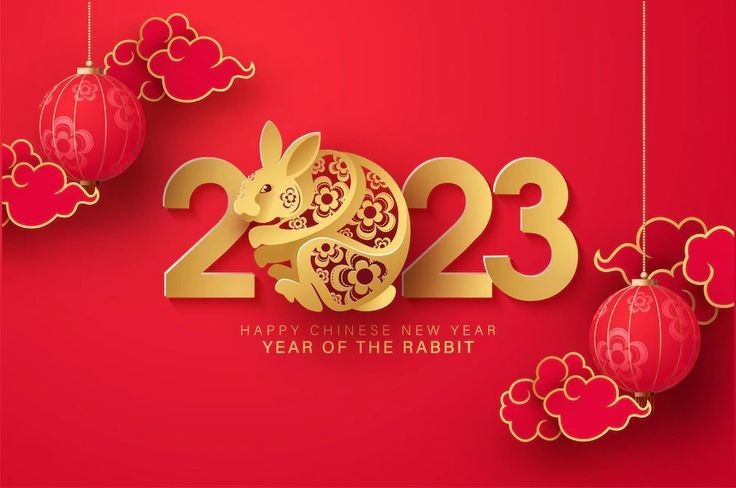Chinese New Year, is the happiest holiday season in China and is full of fun activities. People seem to compete with each other in doing New Year shopping, decorating their own houses, and preparing plenty of festival food. During the half-month celebration, there is much interesting trivia and we select the top 8 fun facts that may inspire you.
1. Every year is represented by a zodiac animal.
Chinese zodiac, also called Shengxiao (生肖), is like the western zodiac in some ways. One of the fun facts about Chinese New Year is that every year is represented by a zodiac animal and it is for the entire year. Chinese zodiacs are based on a 12-year cycle and there are 12 zodiacs in total, which include Rat, Ox, Tiger, Rabbit, Dragon, Snake, Horse, Goat, Monkey, Rooster, Dog, and Pig.
In Chinese culture, the zodiacs play an important role and they are closely related to people’s characteristics, careers, health, and love relationship. At present, people are more likely to regard the zodiac animal as a kind of mascot, which can bring good fortune in the New Year.
2. Hide a lucky coin inside a dumpling
Eating dumplings is one of the most typical customs on New Year's Eve, especially for people in northern China. All the family members reuniting together to have a dumpling feast is undoubtedly one of the happiest things of the day.
An interesting fact is that people will hide a lucky coin or several coins in the process of making dumplings. The coin represents luck and wealth. When eating dumplings, the person who gets the dumplings with lucky coins is believed to get the best luck the next year.
3. “Fu” character posted upside down
The Chinese character “Fu” (福) appears on different occasions very frequently during the Chinese New Year and it is always written on a piece of red diamond-shaped paper. “Fu” means good fortune in Chinese.
Before the Chinese New Year, every family posts the “Fu” on the doors, windows, or walls. If you look carefully, you can find a fun fact that most of the “Fu” are posted upside down. That’s because in Chinese, the words “upside down” and “come” have the same pronunciation. Pasting the “Fu” upside down means that good fortune is coming.
4. Six million people send digital red envelopes.
Another traditional custom in Chinese New Year is the red envelopes, with lucky money inside, which are normally sent by elders to the young generation. The red envelopes represent happiness and good luck. In recent years, with the development of the internet and the popularization of Ali pay and WeChat Pay, people are more likely to send digital red envelopes and this is an activity prevalent among all people.
There have been more than 688 million people sending digital red envelopes to express blessings and wishes in the Chinese New Year of 2022 and undoubtedly there are more people joining this in 2023.
5. No sweeping on Chinese New Year's Day
This is an interesting fact about Chinese New Year – all the sweeping and cleaning have to be finished before New Year’s Eve and it is not allowed to sweep on New Year’s Day. According to the old saying, if you sweep on that day, it means you just sweep wealth and good fortune out of the house.
In different areas of China, the customs are a little different. In some places, people will not sweep until the fourth day of the New Year for keeping good fortune in the house.
6. See off and welcome the Kitchen God
According to Chinese legend, the Kitchen God will visit the Jade Emperor, the ruler of Heaven, to report the daily affairs of families on the 23rd day of the 12th lunar month. For having a better report, people always sacrifice candy and cakes to the Kitchen God. What’s more, sometimes people will paste the syrup on the mouth of the Kitchen God so that he cannot say any bad words about the families.
The time to welcome the Kitchen God is on the 4th day of the 1st lunar month and every family just changes a new painting of Kitchen God and prepares some sacrificial offerings.
7. Welcome the God of Wealth on the 5th day of the New Year
As one of the most important gods in China, the God of Wealth is widely loved by the public. On the basis of folk legend, the fifth day of the New Year is the birthday of the God of Wealth.
In order to celebrate it, people always prepare a big dinner and sacrifice fruits and fish on the previous night. The fish in Chinese means “Yu”, which is associated with lucky things: a prosperous life and abundance. After 0:00, people will set off firecrackers and light fireworks to welcome the God of Wealth. In some areas, it will be arranged in the early morning of the fifth day.
8. The festival originated from fighting against a monster.
One of the most interesting facts about the Chinese New Year is the origin story of the festival. It was said to be about a fierce monster called “Nian”, who would appear every 365 days or 366 days to eat humans.
As time went by, people found that the monster always came at night and was afraid of the red and the sound of the firecrackers. So from then on, people began to drive away the monster by setting off firecrackers, wearing red clothes, and making red decorations.
Therefore, celebrating the Chinese New Year is also called ‘Guo Nian’, which means defeating the monster “Nian”.
